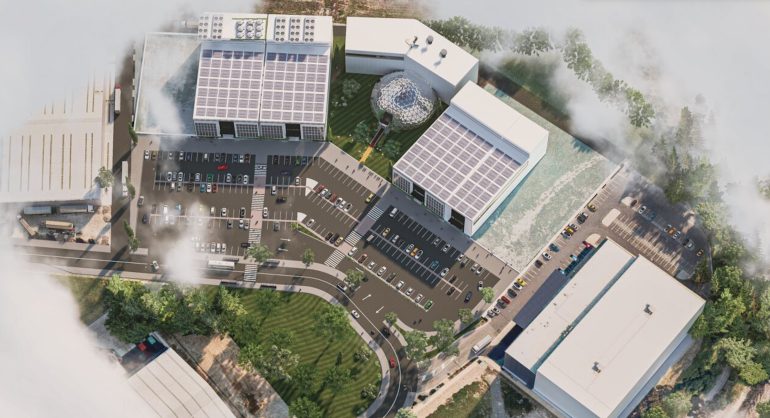The Australian Government has backed plans to build a $66 million Adelaide-based manufacturing hub for the space industry with a $20 million grant towards the project.
The Space Manufacturing Hub, first revealed last December, is a collaboration between the South Australian government and four local startups: nano-satellite maker Fleet Space Technologies, quantum technologies developer Q-CTRL and rocket producer ATSpace, as well as Alauda Aeronautics, the company behind the electric flying racing car for the Airspeeder racing series.
The SA government has already committed $20 million towards the hub at the Australian Space Park at Adelaide Airport, which will focus on collaboration and production of small satellites and their payloads, rockets, electric vertical take-off and landing vehicles (eVTOL), and supporting componentry and technical systems.
It is predicted to create more than 221 direct jobs, as well as 1000 more in the supply chain.
The federal funds have come from the Modern Manufacturing Initiative.
Federal Defence Industry, Science and Technology minister Melissa Price said the project will lock in Australia’s ability to deliver along the entire space supply chain.
“From research and design through to manufacture and operation, Australia’s credentials as a leading space nation are going to be significantly strengthened by this investment,” she said.
Fleet Space Technologies CEO and co-founder Flavia Tata Nardini said the federal backing was an affirmation of the country’s nation’s commitment to sovereign technological capabilities in space manufacturing.
“This industry is creating jobs, technological capability and lasting economic impact for Australia,” she said.
“The Space Hub in Adelaide will position South Australia as a true global centre of excellence in the development of space technologies.”
Fleet Space has designed, built and launched six commercial satellites already with plans to develop a constellation of 140 small satellites in Low Earth Orbit.
The spacetech startup is currently working on a project call ‘Alpha’, to build small satellites using additive manufacturing and 3D printing technology.
Tata Nardini said 3D printing will drive down costs and democratise a technology that enables global connectivity across multiple sectors and user-cases.
Fleet will build what it’s calling “The Hyper Factory” at the manufacturing hub. It will harness the power of local robotics and automation capabilities to enable the development and manufacture of vehicles for Moon to Mars missions including lunar rovers.
Fleet Space is part of the Seven Sisters’ Australian space industry consortium supporting NASA’s Artemis program to land the first woman on the Moon by 2024 and create a sustainable human presence for later crewed Martian exploration.

An artist’s impression of the Australian Space Park
Credit: Source link


Comments are closed.